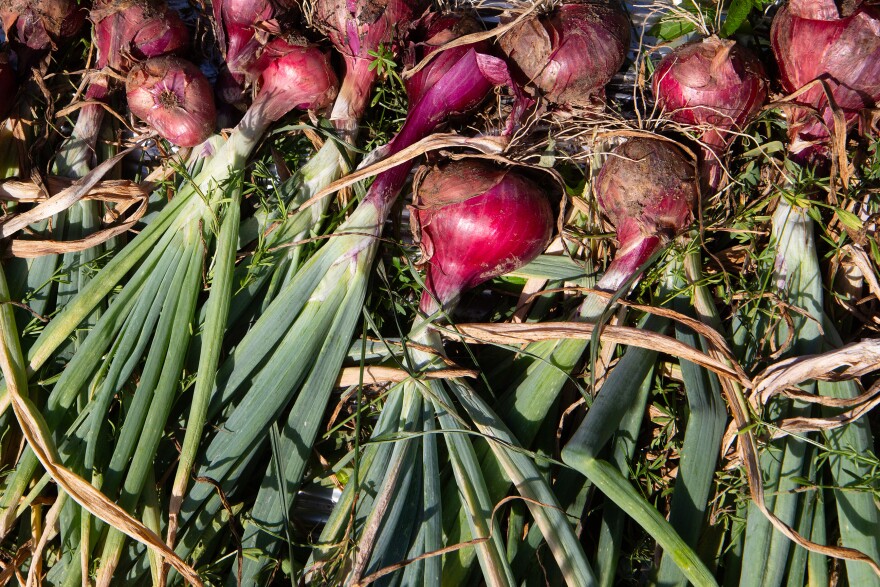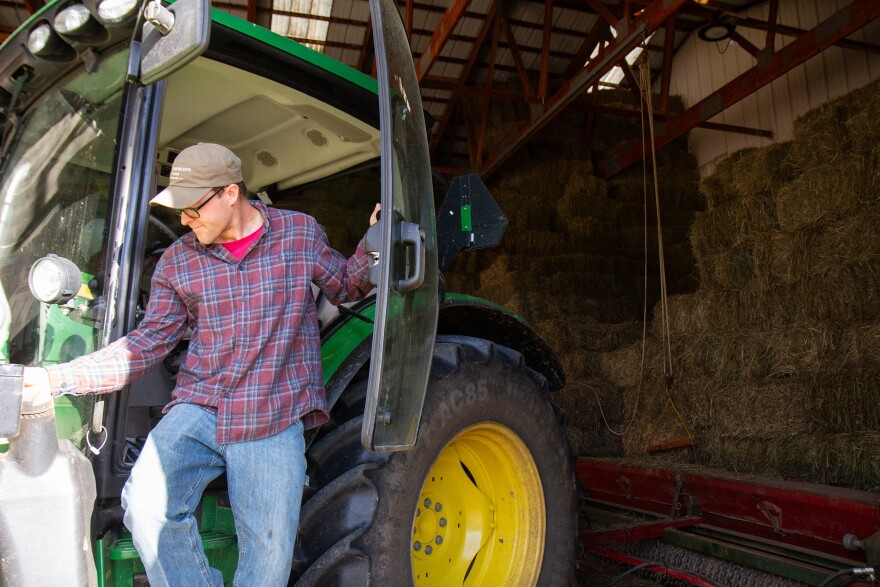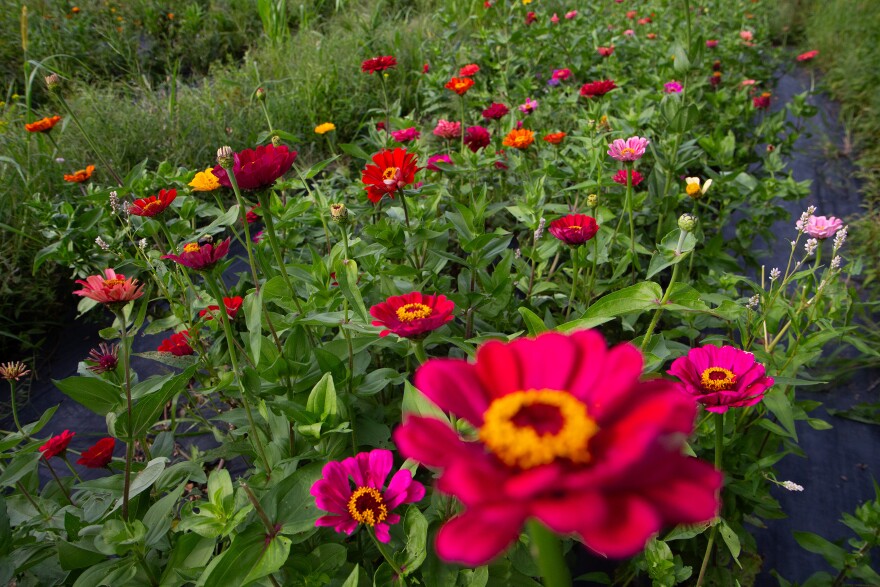This summer, all residents in Jericho and Underhill opened their mailbox to a colorful, 12-page pamphlet.
Artwork on the cover depicts a full harvest bounty. Inside, nearly 50 local agricultural businesses are listed, where customers can go either on-site or to the Jericho Farmers’ Market to buy eggs and meat, veggies and berries, maple syrup and wool, cut flowers, bread, English muffins, jellies and kimchi.

The pamphlet is among the many efforts of the Jericho Underhill Food Hub, a group of volunteers that came together over the last couple years to try to connect local residents to local food.
Sandy Wilmot is the assistant chair of the food hub. The 66-year-old grew up in Underhill, and she says it was then considered a farming community. It bothers her that people now think of her town as a “bedroom community.”
“Often that implies that people aren't connected, that they come, they sleep, they leave,” Wilmot said. “Some of our farmers are like, ‘We could feed everyone in Underhill and Jericho if people would actually eat local food.’”

While there are food hubs across the state and region, this local project originated in Jericho, where voters approved its creation at the 2023 Town Meeting. Then some like-minded people in Underhill wanted to join in 2024.
Wilmot and the Jericho Underhill Food Hub chair, David Clift, said food insecurity during and after the pandemic highlighted how much Vermonters rely on external sources to eat — and how much work remains to make these two towns more self-sustaining.
“When we have a crisis, if we ever do have a crisis, we can't just walk over to the farmers and say, ‘produce for us,’” Clift said. “They need to have years in advance of planning and figuring out how they're going to manage their products and who they're going to sell to.”
Both Clift and Wilmot said the community needs to better support its own growers.

So the food hub secured funds in both Jericho’s and Underhill’s budgets to support the printing of the local business listing pamphlet. They’ve organized three free community meals supplied by nearby farms; canning and grafting workshops; and a kids’ garden contest. And they’ve put up food sharing sheds for gardeners to distribute all those extra cucumbers and zucchinis.
The food hub also recently launched their first fundraiser to help a local farm buy a new, outdoor refrigerator costing around $4,000.
“The more we offer, the more it grows,” Wilmot said.
Local farmers say it’s helpful to get more people talking and thinking about local food — because they don’t necessarily have a lot of time for marketing.
Andy Chamberlin and his wife, Kiley, are both 32 and run their family’s three-generation farm in Underhill. And when he’s not busy at his off-farm day job, he’s repairing old equipment, managing the sweet corn’s response to this summer’s wild temperature fluctuations, and starting new enterprises, like strawberries.
“The mailer that they put out was huge,” Chamberlain said of the food hub. “There's always new faces in town, as people come and go and age out. So it's always great to get the word out and share like, ‘Hey, we're here.’”

Several miles away at The Farm Upstream in Jericho, one of its five co-owners, Spencer Hardy, says it’s helpful to have the food hub as another player in order to weather rapid changes in the food market.
“Buyers come and go, and farms that have been buying stuff from us for resale maybe go under, or different folks take over,” he said. “As we get past this COVID bump of federal spending at school cafeterias and with the state budget looking a little uncertain, I think, I know it's more in my mind than it has been in the past.”
Hardy added that the food hub could also be useful in a surplus crop situation. “We've got tons of tomatoes that we can't get out the door fast enough, and if there was a space or a bunch of people that wanted to can those or freeze them for the schools for later in the season, or somehow make good use of our surplus when we have a bumper crop of something, that would be really awesome,” he said.

One of the longer-term dreams for the food hub is to open a facility for processing and storing food locally, according to David Clift. That's similar to the dream for Christa Alexander, a co-owner of Jericho Settlers Farm: to bring enough growers and up-front capital together to share something like a carrot co-packing plant, and to create enough efficiency to lower prices for customers.
“In Vermont, we're like, so close to that,” Alexander said. “But I feel like we haven't quite hit the tipping point, where it's enough volume and price for the growers to jump on board. And how do we get there?”
Those are the kinds of questions the Jericho Underhill Food Hub is looking into.
“We want to build a community that's resilient,” Clift said. He added that they’re doing so by meeting one of the Jericho-Underhill community’s most basic needs: access to food.





